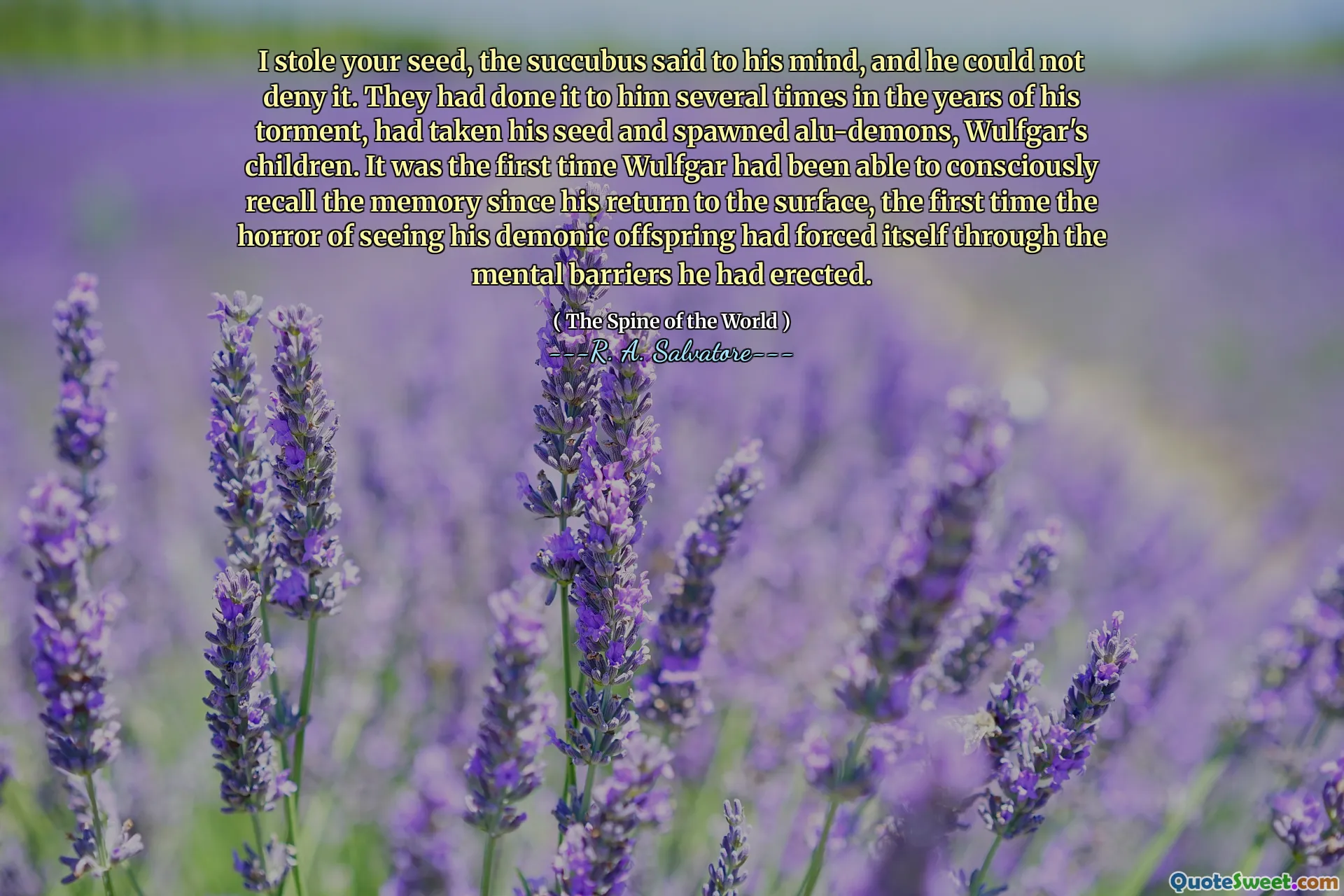
I stole your seed, the succubus said to his mind, and he could not deny it. They had done it to him several times in the years of his torment, had taken his seed and spawned alu-demons, Wulfgar's children. It was the first time Wulfgar had been able to consciously recall the memory since his return to the surface, the first time the horror of seeing his demonic offspring had forced itself through the mental barriers he had erected.
[In this passage, the author delves into the harrowing experience of Wulfgar as he confronts the manifestation of his deepest fears and memories. The act of the succubus claiming his seed symbolically represents an invasion of his autonomy, highlighting themes of violation and helplessness. Wulfgar’s torment spans years, a testament to enduring trauma, and the emergence of his demonic offspring serves as a chilling reminder of the consequences of such dark influences. The imagery evokes powerful emotions—fear, shame, guilt—that are compounded by the realization that these children are not merely demons but manifestations of his own biological progeny, Chaos born from abuse and manipulation. This scenario invites reflection on themes of lost innocence, the impact of metaphysical and psychological warfare, and the horror of facing one's own darkness. Wulfgar's first conscious memory of these events indicates a breaking of mental barriers, suggesting a critical turning point where he faces the reality of his suffering. Such storytelling underscores the brutal truth of inner demons—those fears and memories we sometimes suppress but remain ever present, shaping our identities and fears. It prompts readers to consider the weight of trauma and the resilience needed to confront one's past, especially when it manifests in forms both literal and symbolic. The narrative's dark tone underscores the importance of acknowledging pain to move forward, even if that pain is haunting and incomprehensible at first glance. Overall, the passage offers a profound meditation on the themes of trauma, memory, and confronting one's inner demons, illustrating how the past can come unbidden, demanding recognition and understanding."






